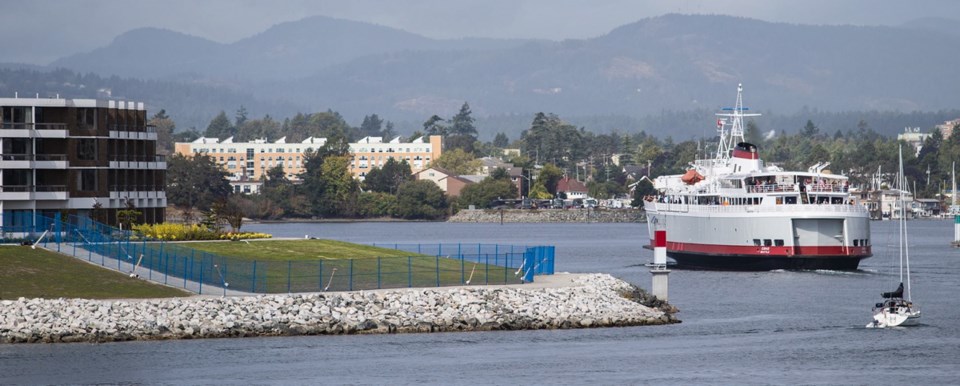The thing we often forget about our neighbours across the strait is how plugged in to Victoria they are.
The connection is logical, though, seeing as how Port Angeles is just 30 kilometres across the saltchuck — close enough, with a telescope, to see our traffic lights change — but isolated from everywhere else.
With the closest big centre, Seattle, being two hours to the east, some on the north Olympic Peninsula find it easier to pop over to Victoria to shop for everything from clothing to dentistry. Some come here so often that they buy season’s passes to Butchart Gardens.
Walk into a store in Port Angeles, you’re likely to hear a Victoria radio station. Many choose our TV stations for their weather forecasts, too. “That Ed Bain, he’s a caution,” a Clallam County man once told me. Others swear allegiance to Brittany King or Robin Farrell.
You can even buy a copy of the Times Colonist at Port Book and News on First Street. Or, at least, you could. Past tense.
“We still get people asking if they can get it,” says Helena Pohl, who works at the store. No, she tells them, there’ll be no TC until the MV Coho sails again.
And there’s the problem. While Victorians see the pandemic-caused shutdown of Black Ball’s ferry service as primarily a tourism-related story, in Port Angeles it’s more than that. Many in the Washington town of 19,000 treat Victoria almost as an extension of their own community, says Black Ball president Ryan Burles. Not right now, though. Without the Coho, access to the extension is cut off. Nobody knows how long it will be before cross-border conditions allow the ferry to sail again, either. This winter? April?
That’s disruptive to the people Burles knows of who work here and live there, commuting on weekends. What do they do now? There was even one Port Angeles resident who regularly crossed over to volunteer at the Royal B.C. Museum.
Then there are those who simply come over for fun: I met one guy who said he makes a beeline from the ferry to the legislature dining room every time he visits, and another couple who habitually disembark clutching an empty Tupperware container, which they fill with barbecued pork from Chinatown before heading back. Others have found ways to buy relatively cheap pharmaceuticals.
The disruption goes both ways, of course. June usually sees a big Vancouver Island contingent cross the strait to run the North Olympic Discovery Marathon. Each August, the deck of the Coho looks like the start line of the Tour de France as packs of cyclists go over for the Ride the Hurricane climb to Hurricane Ridge in Olympic National Park. A smaller group of Victoria riders takes advantage of the July 1 holiday to tackle an unofficial version of the same event. (When they did so in 2018, a woman was waiting at the top with a plate of goodies. “Hey boys,” she said, “it’s Canada Day, so we baked you some cookies and wanted to let you know we don’t like what that Donald Trump is doing to our country.” Only in a place like Port Angeles would Americans know when Canada Day is.)
The loss of visitors has been a big blow in a community that has largely transitioned from a forestry-based economy to one rooted in tourism and outdoor recreation, says Marc Abshire, the executive director of the Port Angeles Chamber of Commerce. You can’t put that down to the Coho being tied up, though. The pandemic might have left the area less hard-hit than other parts of Washington — no one on the north Olympic Peninsula has died of COVID-19 — but the people who would usually visit are staying home, which suits some virus-wary residents just fine.
“There just aren’t that many people travelling these days,” Abshire says. Even if the ferry were sailing, there’s no way it would see the 475,000 passengers and 130,000 vehicles it carried in 2019.
Abshire misses the boat, though. “The ferry is a big part of who we are.” The sound of the ship’s horn is the sound of his city. When relatives come from out of town, day-tripping on the Coho is just one of the things you do. But now the link is severed, and no one knows for how long.
“It’s not just an economic story,” Abshire says. “It’s a cultural story, too.”



